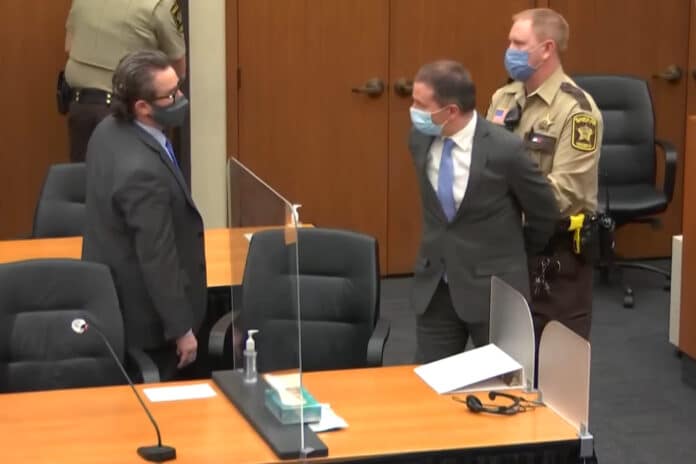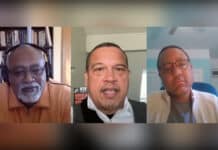
The U.S. Supreme Court on Monday declined to hear former Minneapolis police officer Derek Chauvin’s appeal of his murder conviction in the death of George Floyd.
Chauvin’s appeal was included in a list of rejected cases released by the court, which did not comment on the reason for the denial.
Chauvin was convicted of unintentional second-degree murder, third-degree murder, and second-degree manslaughter in April 2021. He is currently serving a more than 22-year prison sentence at a federal prison in Tucson, Ariz.
Chauvin’s attorneys filed an appeal with the U.S. Supreme Court just a month ago, arguing that his Sixth Amendment right to a fair trial was violated.
“If the jurors acquitted Mr. Chauvin, they would have been bracing for a resumption of riots in their own community and possible threats to their own personal safety — which virtually all the jurors expressed when questioned by the attorneys prior to trial,” attorney William Mohrman previously said in a statement.
Chauvin’s petition to the court argued that “government officials presumed that community passions were so inflamed that rioters may invade the courthouse itself during the trial.”
“As a result, the courthouse was surrounded by barbed wire and concrete block and protected by the National Guard troops and two armored personnel carriers,” it says.
Jurors were “not sequestered until after closing arguments” and they “were exposed to this protection every day as they came to the courthouse from March 8th through the April 20th verdict,” the petition states.
The filing also describes the fear jurors experienced.
“One juror testified of being ‘terrified’ to serve and another stated that ‘I do [have concerns for my personal safety] for afterwards because I know [my identity] would be public information, and it really depends on how the trial — end results.’”
Chauvin’s defense attorney for his state trial reported that his office “received over a thousand negative or threatening emails alone,” the petition says.
Still, the trial court denied a change of venue request.
The petition also takes note of Juror 52, who has since publicly identified himself as Brandon Mitchell.
“Juror 52’s responses were false. Chauvin’s trial counsel learned that Juror 52 had participated in a Washington, D.C. ‘Commitment March: Get Your Knee Off our Necks’ in August 2020 which arose from the death of Mr. Floyd and that a photo of Juror 52 at the march showed Juror 52 attended the march and wore a ‘Get Your Knee Off Our Necks BLM’ t-shirt and a ‘Black Lives Matter’ baseball cap,” the petition states.
Chauvin spoke exclusively to Alpha News in the new documentary “The Fall of Minneapolis,” along with former officer Alex Kueng.
















